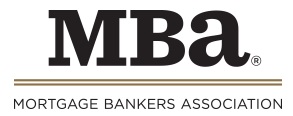WASHINGTON, D.C. – March 14, 2012 – (RealEstateRama) — Mortgage applications decreased 2.4 percent from one week earlier, according to data from the Mortgage Bankers Association’s (MBA) Weekly Mortgage Applications Survey for the week ending March 9, 2012.
The Market Composite Index, a measure of mortgage loan application volume, decreased 2.4 percent on a seasonally adjusted basis from one week earlier. On an unadjusted basis, the Index decreased 1.8 percent compared with the previous week. The Refinance Index decreased 4.1 percent from the previous week to its lowest level since January 6, 2012. This is the fourth consecutive weekly decline in the Refinance Index. The seasonally adjusted Purchase Index increased 4.4 percent from one week earlier to its highest level since January 13, 2012. The unadjusted Purchase Index increased 6.0 percent compared with the previous week and was 0.4 percent lower than the same week one year ago.
The four week moving average for the seasonally adjusted Market Index is down 2.12 percent. The four week moving average is up 2.92 percent for the seasonally adjusted Purchase Index, while this average is down 3.29 percent for the Refinance Index.
The refinance share of mortgage activity decreased to 75.1 percent of total applications from 77.0 percent the previous week. This is the fourth consecutive weekly decline in refinance share, which is at its lowest level since November 25, 2011. The adjustable-rate mortgage (ARM) share of activity increased to 5.8 percent from 5.4 percent of total applications from the previous week.
“Applications for home purchase increased again last week, coinciding with another strong job market report. Purchase applications are now almost 12 percent above the level one month ago, even after adjusting for typical seasonal patterns. However, this level of purchase activity, adjusted or unadjusted, was essentially unchanged when compared to the same time last year. Purchase activity remains subdued and within the narrow range we have seen since the expiration of the homebuyer tax credit in 2010,” said Michael Fratantoni, MBA’s Vice President of Research and Economics. “Refinance application volume fell last week. Although rates were unchanged on average, they trended up through the course of the week, and this likely discouraged many potential refinance applicants. HARP volume continued to grow as a share of total refinance volume, reaching roughly 30 percent of refinance activity in the last two weeks. Typical HARP loans had loan-to-value ratios above 90 percent, indicating that lenders are reaching out to underwater borrowers.”
In February 2012, United States purchase application volume increased by 18.0 percent from January 2012 and decreased 2.0 percent from the same time last year. Only three states saw a monthly decrease in purchase activity from January to February. Montana had the largest monthly purchase volume decrease of 7.1 percent, followed by the District of Columbia (down 3.1 percent from last month), and New Mexico (down 1.6 percent from last month).
The average contract interest rate for 30-year fixed-rate mortgages with conforming loan balances ($417,500 or less) remained unchanged at 4.06 percent, with points decreasing to 0.43 from 0.50 (including the origination fee) for 80 percent loan-to-value ratio (LTV) loans. The effective rate decreased from last week.
The average contract interest rate for 30-year fixed-rate mortgages with jumbo loan balances (greater than $417,500) increased to 4.39 percent from 4.33 percent, with points decreasing to 0.39 from 0.40 (including the origination fee) for 80 percent LTV loans. The effective rate increased from last week.
The average contract interest rate for 30-year fixed-rate mortgages backed by the FHA decreased to 3.82 percent from 3.87 percent, with points decreasing to 0.55 from 0.70 (including the origination fee) for 80 percent LTV loans. This is the lowest 30-year FHA rate of the year. The effective rate decreased from last week.
The average contract interest rate for 15-year fixed-rate mortgages remained unchanged at 3.36 percent, with points decreasing to 0.34 from 0.38 (including the origination fee) for 80 percent LTV loans. The effective rate decreased from last week.
The average contract interest rate for 5/1 ARMs increased to 2.81 percent from 2.78 percent, with points increasing to 0.37 from 0.35 (including the origination fee) for 80 percent LTV loans. The effective rate increased from last week.
If you would like to purchase a subscription of MBA’s Weekly Applications Survey, please visit www.mortgagebankers.org/WeeklyApps, contact "> or click here.
The survey covers over 75 percent of all U.S. retail residential mortgage applications, and has been conducted weekly since 1990. Respondents include mortgage bankers, commercial banks and thrifts. Base period and value for all indexes is March 16, 1990=100.
###
The Mortgage Bankers Association (MBA) is the national association representing the real estate finance industry, an industry that employs more than 280,000 people in virtually every community in the country. Headquartered in Washington, D.C., the association works to ensure the continued strength of the nation’s residential and commercial real estate markets; to expand homeownership and extend access to affordable housing to all Americans. MBA promotes fair and ethical lending practices and fosters professional excellence among real estate finance employees through a wide range of educational programs and a variety of publications. Its membership of over 2,200 companies includes all elements of real estate finance: mortgage companies, mortgage brokers, commercial banks, thrifts, Wall Street conduits, life insurance companies and others in the mortgage lending field. For additional information, visit MBA’s Web site: www.mortgagebankers.org.














